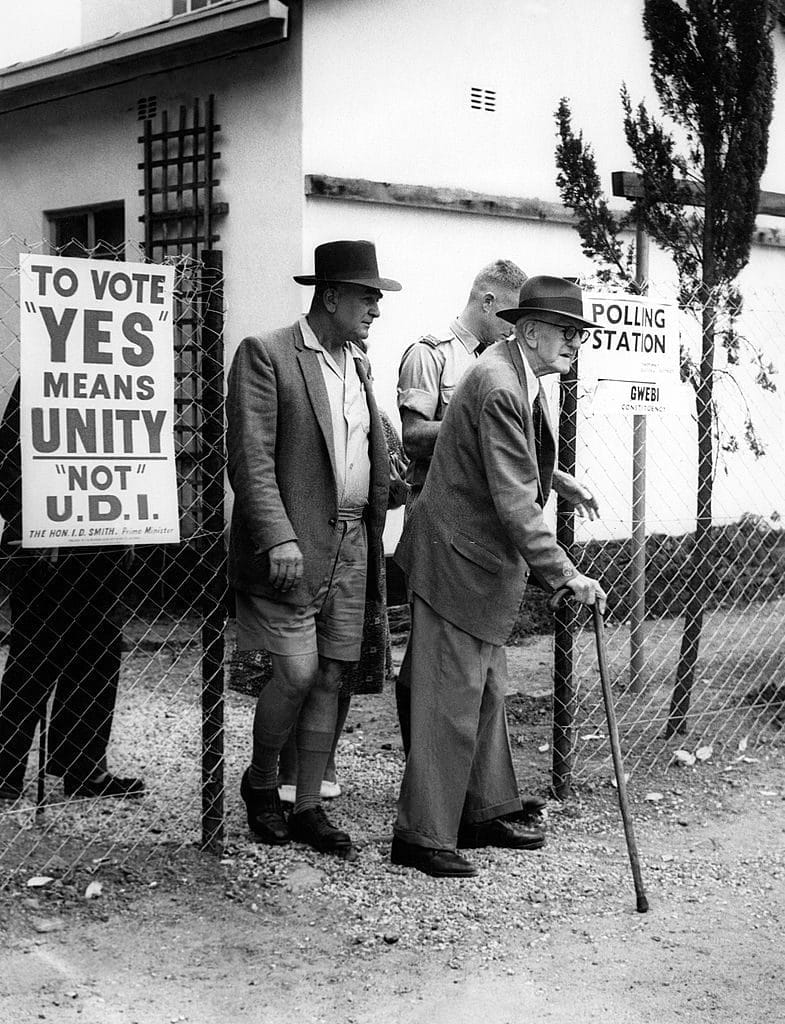On November 11, 1965, Rhodesia proclaimed itself an independent sovereign state when Rhodesian Prime Minister, Ian Smith, signs the Unilateral Declaration of Independence (U.D.I.).
In Mr Smith’s Rhodesia the 220,000 white Rhodesian minority will ruled over nearly 4,000,000 strong indigenous population. However in keeping with the post-war trend towards decolonisation, British authorities were only prepared to permit independence on the basis of giving the black majority population a fair share of power. When negotiations stalled Ian Smith’s government declared independence severing its links with the British Crown.
The background
The road to Southern Rhodesia’s Unilateral Declaration of Independence (UDI) began at the Victoria Falls conference in the summer of 1963. It was here that the dissolution of the Federation of Rhodesia and Nyasaland, or Central African Federation (CAF), was agreed.
Two of Federation’s constituent members, Nyasaland and Northern Rhodesia, became independent in 1964 as Malawi and Zambia respectively. Southern Rhodesia was more problematic. Unlike its former partners, which were British protectorates, Southern Rhodesia had been a self-governing colony since 1923. However, it was also dominated by a white minority numbering 220,000 according to the 1965 census, as opposed to over 4 million Africans. Predominantly British in origin, this minority community was strong and largely united.
What happened next?
Both Rhodesian opposition parties – the Zimbabwe African National Union (ZANU) and the Zimbabwe African People’s Union (ZAPU) declared breakaway governments. They have both called upon the British Government to use force to suspend the Smith Government.
Great Britain decided against sending troops to deal with the crisis. Instead a full-range of sanctions have been announced including ceasing all British aid to and preferential treatment for Rhodesia, banning the import of Rhodesian tobacco and recalling the British High Commissioner.
The United Nations Security Council condemned Mr Smith’s regime in Rhodesia.
The US immediately supported the British sanctions – with embargoes on arms exports and sugar imports – and the UN called for all its members to implement economic sanctions in 1966.
France and the USSR abstained, but South Africa and Portugal – with its colony Mozambique – refused and their continued trading with Rhodesia was instrumental in keeping the Smith government afloat.











